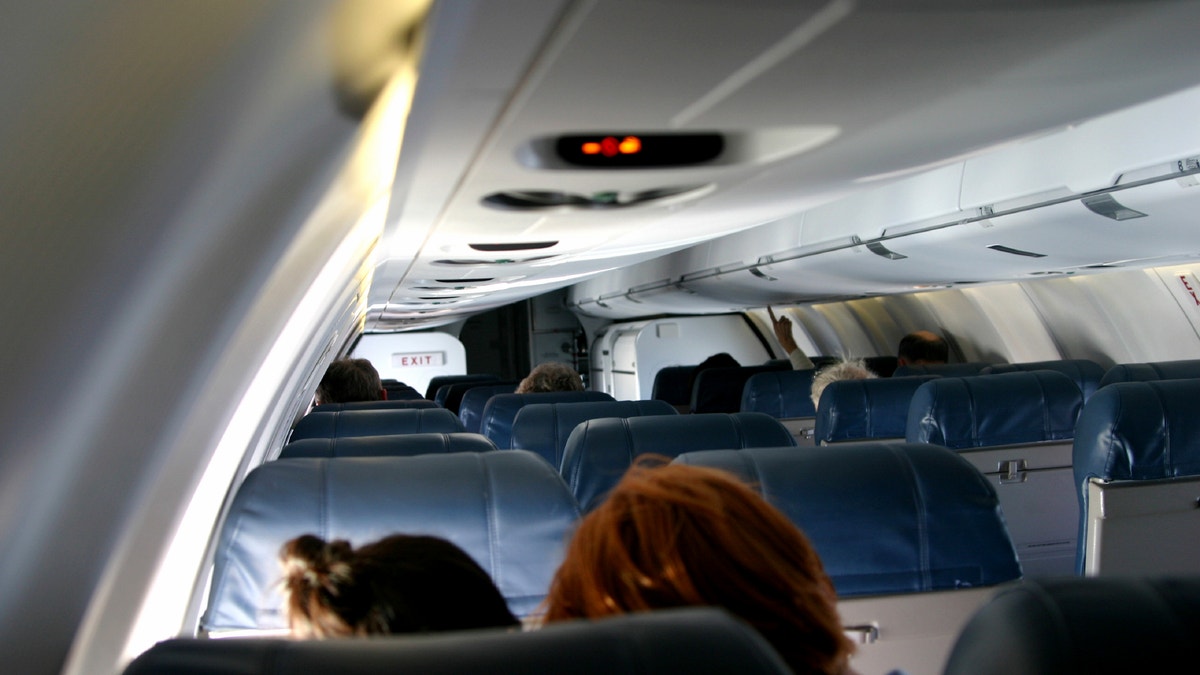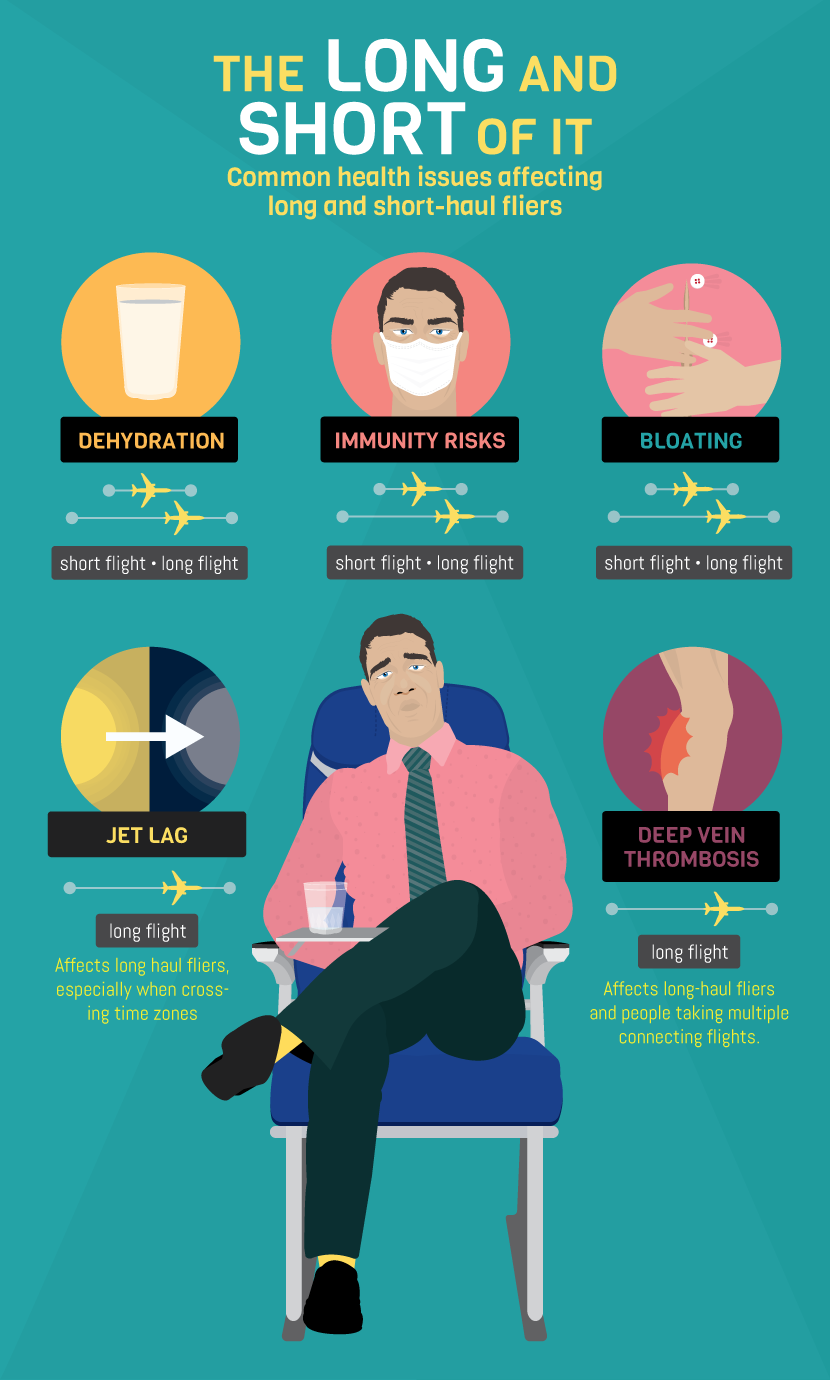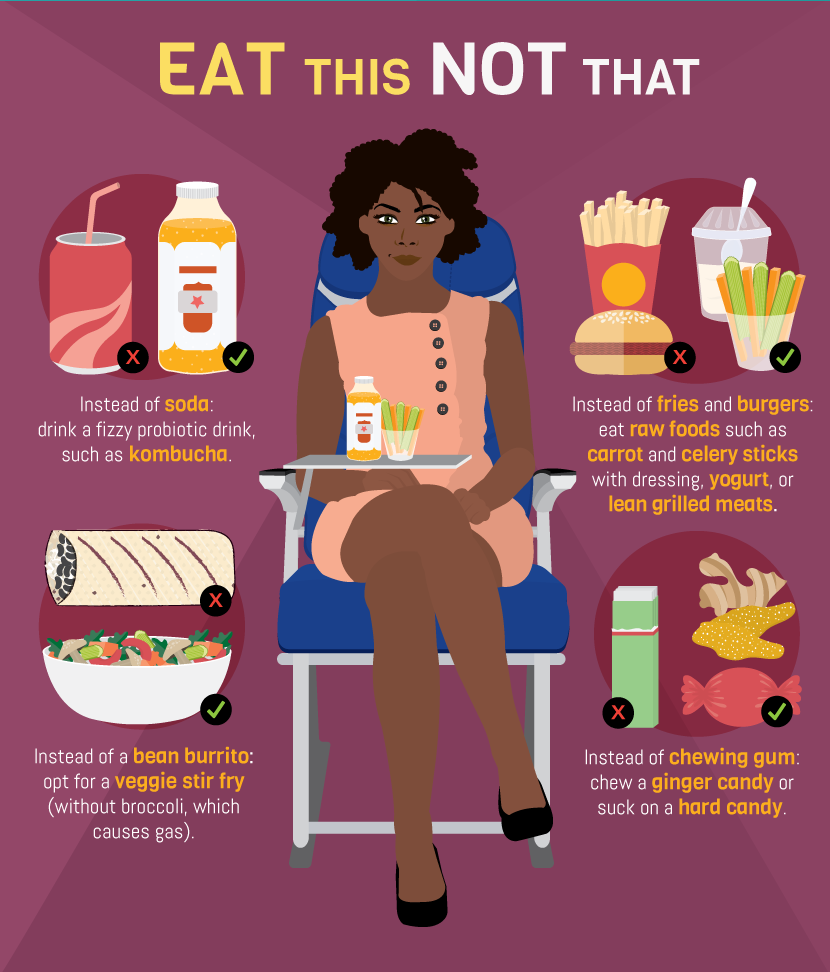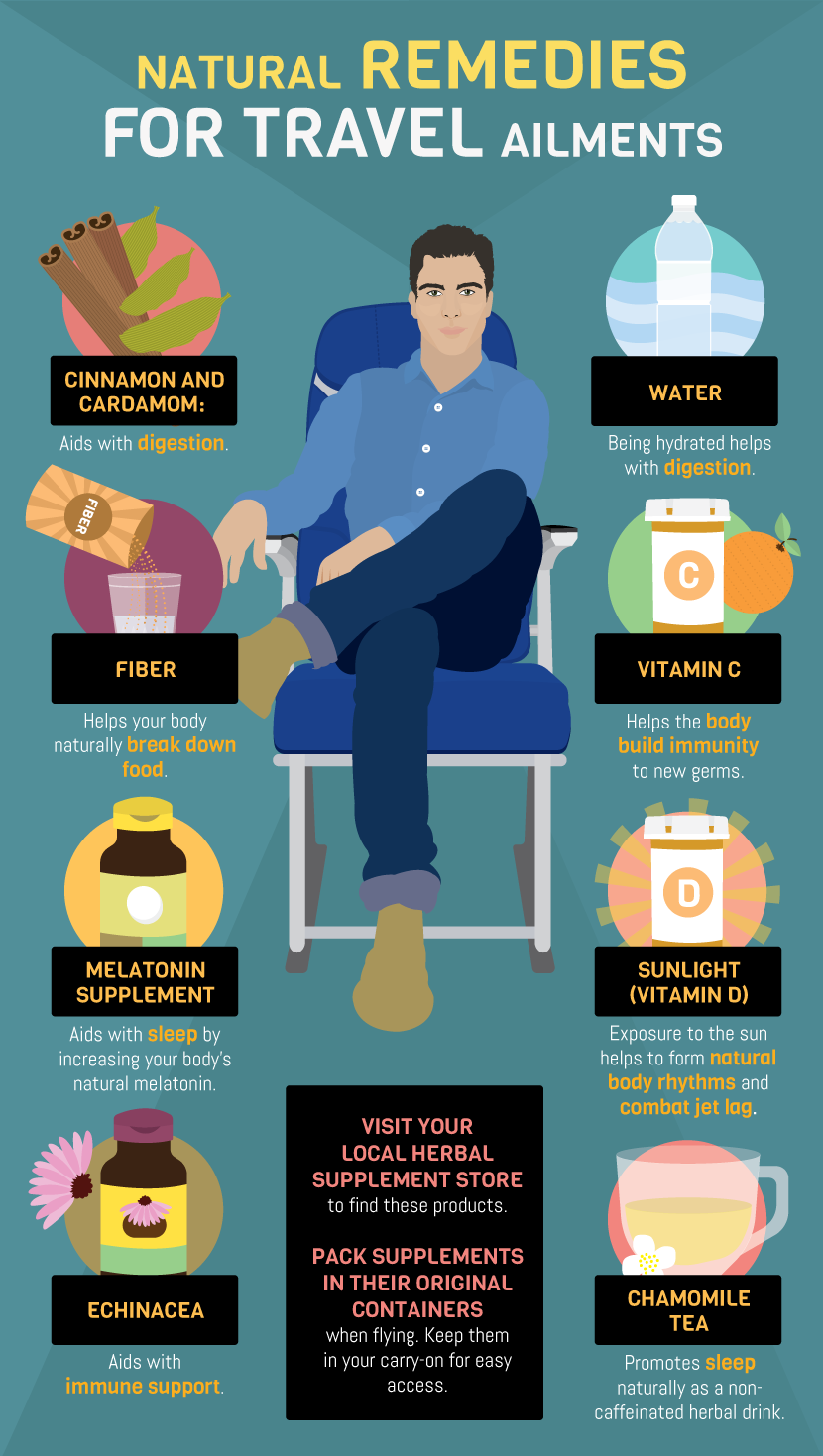
Air travel days are exciting and fun but can also wreak havoc on your health as you lose sleep, eat off your usual schedule, and share space with strangers, often in cramped quarters. The good news: there are easy travel health hacks that make flying more comfortable and help you get you off to a good start on your next trip or vacation.
Common Travel Day Health Issues and Why They Arise
Certain physical challenges present themselves when flying long distances thanks to changed sleep schedules and diet, altitude changes, and the stress of travel days. The following are the most common (and why):
Dehydration: Dehydration will sneak up on you if you’re not careful in avoiding it. This problem is common for those on flights largely because of changes in schedule. When you’re off your usual routine, you may skip your usual water intake. Combine a harried schedule with the inability to bring filled water bottles through security, and many travelers begin their journeys dehydrated.
Circulation problems (DVT): Prolonged sitting in a cramped environment (economy class, anyone?) can cause deep vein thrombosis (DVT). When blood flows too slowly through veins, potential clots can form. DVT occurs more often on long-haul flights or even during car travel.
Bloating/digestive problems: We can thank cruising altitudes for increased bloating during flight. According to Costa Mesa, California, colon therapist Kitty Marteen, the change of altitude causes dehydration in the digestive tract. Travelers’ organ tissues literally lose several liters of water when up in the air. This causes bloating in-flight and afterward – along with constipation once you’ve reached your destination.
Decreased immunity: Airplanes and airports are enclosed public spaces and, as such, prime breeding grounds for bacteria and viruses. Immune systems can be attacked from many sources in just one trip, even when efforts are made to maintain sanitary conditions.
Jet lag: Jet lag, or desynchronosis, is a temporary disorder that causes fatigue, insomnia, and other symptoms as you travel across time zones. According to the Mayo Clinic, jet lag is tied to the disruption of the internal body clock, and pressurized airplane cabins and high altitude can contribute to the problem. Most travelers are familiar with the concept of jet lag, but many don’t realize that it tends to be worse traveling east than traveling west for North Americans.
What Travelers Can Do
Many things may be out of your control when you fly, but your health isn’t one of them. Though sometimes challenging to maintain while on an airplane, there are preventative measures and actions you can take in flight to alleviate any health issues.
For all flights:
Drink lots of water: Drink at least eight cups of water per day in the days leading up to your flight, and bring a water bottle to the airport, which you can fill after you’ve passed security. Continue to drink water during your flight.
Avoid alcohol: Though tempting, especially if you’re a nervous flyer, consuming alcohol before or during your flight is just a bad idea. Flying dry keeps the body more hydrated and allows you to take any other needed medications. It’s also best to avoid caffeine, another difficult one!
Avoid high-fat and high-salt foods: Foods high in fat and salt (such as the kind easily found in airport food courts) can cause dehydration and make digestion take longer, adding to bloating. Instead, look for low-fat snacks and meal choices.
Consider taking a probiotic or colonic: These over-the-counter remedies are not laxatives and can help you stay regular while traveling. According to AOL Health, digestive enzymes and lactase supplements can help.
For long-haul flights:
Move around as much as possible: Whether you’re sitting in roomy first class or economy, it’s important to stand up and move around as much as possible during your long-haul flight. Doing so keeps the blood flowing and can prevent circulation issues.
Consider wearing compression socks: Known to combat DVT, compression socks are tight, knee-length socks that squeeze the calves, aiding circulation. Often recommended for pregnant women during air travel days, compression socks are useful for everyone.
Stay close to the airport: If you’ll have a long early morning commute the day of your flight, consider booking a room at an airport hotel instead. Almost all will offer a free shuttle to the airport in the morning, saving you on parking fees and giving you a few extra hours of sleep.
Adjust your body to a new time zone slowly: Ease the symptoms of jet lag by adjusting yourself to a different time zone. Starting a week before your trip, before bedtime, set your clock one hour closer to your destination’s time zone. The next night, set the clock ahead two hours, and so forth. By the time you leave, your sleep patterns will be more closely aligned to those appropriate for your destination.
Consider natural sleep aids in flight: To aid sleep in flight, wear an eye mask to block out unwanted light along with noise-cancelling headphones. A travel pillow and travel-friendly blanket from home can also help. Bringing a comfort item from home adds to your sense of normalcy and well-being, which help you get needed rest.
If you still have concerns, don’t hesitate to speak to your physician or health-care specialist before traveling.
What to Do After Landing
Even if you weren’t able to prevent any of the symptoms common to travelers, there’s still much you can do after you land.
Get back on normal mealtimes as quickly as possible. The sooner you’re eating on a schedule, the faster you’ll have normal digestion and bowel movements as well. If possible, find foods that are familiar to you, and stick with bland choices until you’re back on track.
Expose yourself to plenty of sunlight. There are plenty of (unproven) remedies for jet lag, but experts agree that nothing beats sunlight. According to the Mayo Clinic, light influences the regulation of melatonin, a hormone that helps synchronize cells throughout the body. At night, the lack of light tells the pineal gland (in the brain) to release melatonin. During daylight hours, the pineal gland produces very little melatonin. Jump right into your day upon arrival in a new time zone, spending as much of it outdoors as you can.
Exercise. Exercise further signals to your body that it’s daytime, not bedtime, as it produces adrenaline in the body. Exercise also helps your body restore circulation, and the water you’ll drink afterward will give your digestion a healthy jump-start.
Whether you’re flying a long way or close to home, enjoy your next trip with added health benefits!
Here’s What Dehydration Does to Your Body (and What to do About it)
How to Clear Snow Safely and Efficiently (Without Injuring Your Back!)
Beneficial Brew: The Unexpected Health Benefits of Beer



